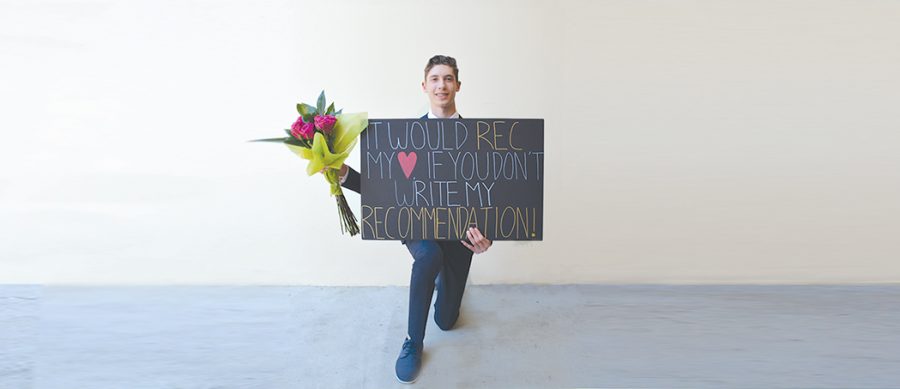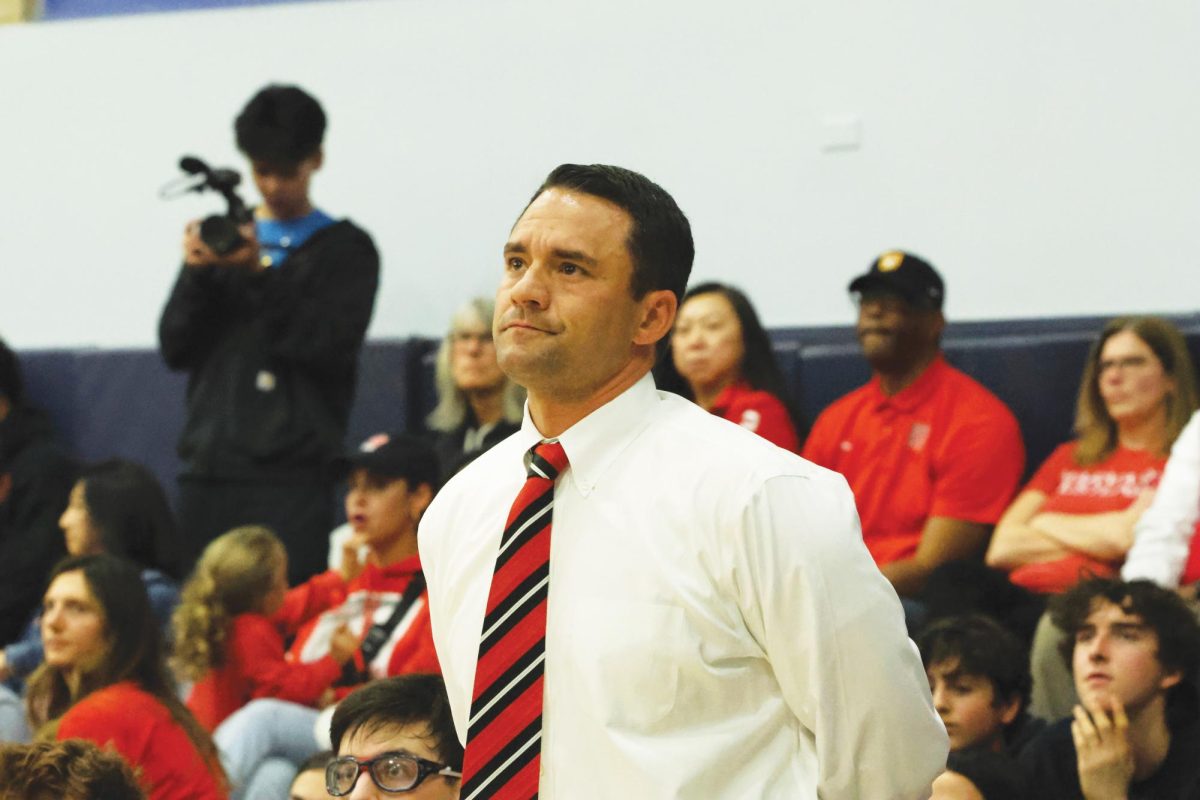When Luke Rowen ’19 first picked up a deck of “Magic: The Gathering” cards as a junior in math teacher Andy Stout’s Design and Data Structures class, he was not thinking about college recommendations. One month later, when he traveled with Stout and other members of the Magic Club to Phoenix for the Grand Prix, a Magic tournament, he was focused on beating his next opponent, not on what adjectives Stout might use in the future to portray him to colleges. And one year later, as he walked slowly toward the math office to ask Stout for a college recommendation letter, Rowen was thinking about the last Magic game he played against Stout, not stressing over whether Stout would say yes or no.
“People always make the joke that when you see your teacher at a grocery store, you duck behind an aisle, but what was funny about going places out of school with Stout was that I realized he is the same person in class as he is out of it,” Rowen said. “The more I got to know him and he got to know me, the more I realized ‘yeah, this is the kind of person I can trust with my rec.’”
Between May of junior year and October of senior year, students typically ask two teachers to write letters of recommendation for their college applications. Throughout their sophomore and junior years, students build relationships with their teachers and advisors through classes and extracurricular activities. Once students make up their minds about who they want to write recommendations for them, many make an effort to build deeper connections with those teachers in hopes of receiving a stronger recommendation.
Though Kate Konvitz ’20 has not yet decided who she is asking for recommendations, she said that getting to know teachers one-on-one plays an important role in her decision-making process.
“With teachers who I am considering asking, I focus on meeting with them a lot more and making sure that I can get a better sense of both [sides] of the relationship,” Konvitz said. “Before I make a choice, I want to know if they are someone that I can really connect with on a more personal level — someone that I can feel relaxed around and have a friendship with.”
When Stout writes his letters of recommendation, he often draws upon experiences he had with students outside of the classroom, he said. Almost every recommendation he has written at the school has been for students who he got to know in part through the Magic club.
“Whatever I think of most when I think of that student is what I write about – whatever ‘wows’ me about that student,” Stout said. “In [Rowen’s] case, [Magic] gave me anecdotes and stories about his character, in addition to a perspective on how he acts outside of the classroom.”
Anthony Khaiat ’19 said that he thinks experiences with his teachers outside of class gave them more to write about. When, as a sophomore, Khaiat learned that his French teacher Simona Ghirlanda was involved with various French activities outside of class, he jumped at the opportunity to get to know her better, he said.
“One day she asked me to fulfill my school service requirement doing French audio recordings in the language lab,” Khaiat said. “I didn’t really know what to expect, but I saw it as a chance to show my commitment to French, and it ended up being really fun. Through that, I think she really got to know me as a person rather than just a student, and it solidified my relationship with her.”
While some students may think it will benefit them to try to get to know their teachers better in anticipation of asking them for a recommendation, their attempts can often go overboard, Spanish teacher Sephora Escarpeta-Garcia said.
“If you want to build a teacher-student relationship with me where we have discussions about topics inside or outside of the class, that is great, but I would not want you to take advantage,” Escarpeta-Garcia said. “I put effort into reaching out to students as a person, and it hurts my feelings to be treated just as a possible recommendation.”
Students also will often target teachers for recommendations whose classes they have performed best in. While some students want their teachers to talk about their strong class performance, this may not be the best approach, Upper School Dean Sharon Cuseo said.
“When we discuss options, students can be so reluctant to get letters of recommendation from a class that is one of their lower grades, but that is often the best person to get a recommendation from,” Cuseo said. “Colleges can look at the transcripts if they want to know how well a student did in class, but the recommendations tell schools so much more about who the student really is.”
Though writing recommendation letters often coincides with other significant deadlines and work, Ghirlanda said that the gratification she feels from being able to reflect on her relationships with students is rewarding and validates the time she spends writing the letters.
“I would define [writing recommendations] as a ‘labor of love,’” Ghirlanda said. “I take great pride in writing letters that are unique for each student. I myself need to recognize each letter that I write as non-recyclable for others, and that takes work, no matter how many words I decide to use.”
Choosing a teacher to write a recommendation should be less about checking off boxes on a college application, Rowen said. Instead, a recommendation letter is the culmination of a strong, unique, organically formed relationship between a student and a teacher.
“If you are being nice to a teacher because you want them to write you a recommendation, it’s not the right teacher,” Rowen said. “At the end of the day, it’s kind of like building a relationship with a classmate. The only difference is that instead of a Jane or a Tom, it’s Mr. Weiss, or it’s Ms. Hutchison or it’s Mr. Stout.”







































